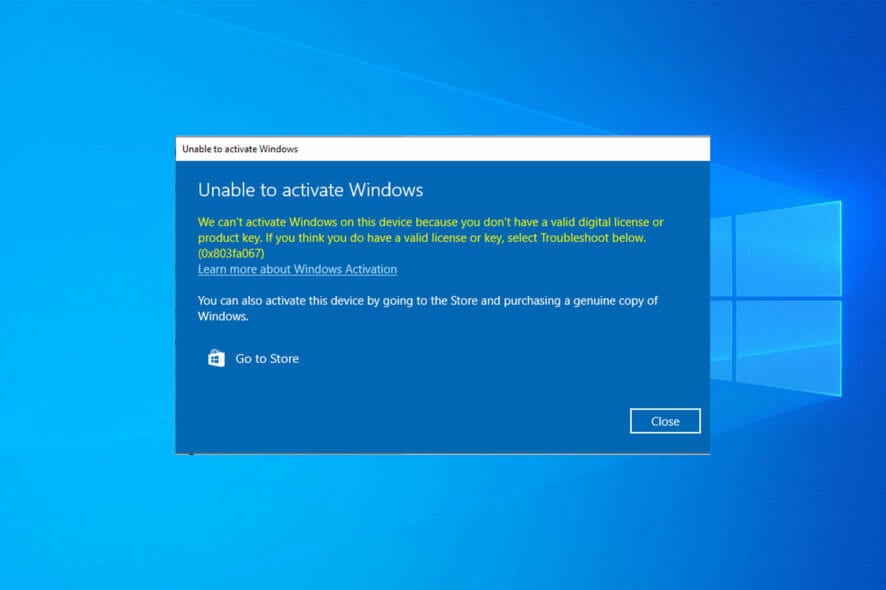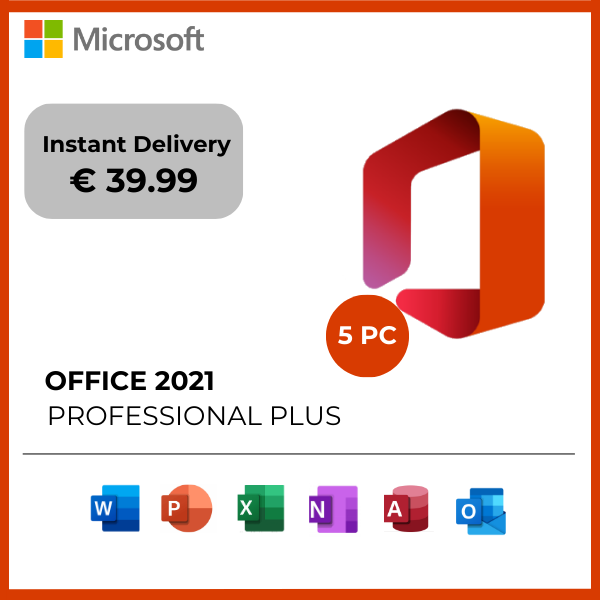Pro Reasons On Deciding On Windows Microsoft Office Pro Download Websites
Wiki Article
Top 10 Tips For Return And Refund Policy For Windows 10/11 Pro/Home/Home And Office
If you purchase Windows 10/11 Pro or Windows Home product activation/licenses, it is essential to be aware of the refund and returns policy. This will help you in the case that the key is not valid, does not perform, or does not meet your expectations. The top 10 points to remember when it comes to refunds or returns are:
1. Know the seller's policy on refunds and returns Prior to purchasing
It is crucial to know and understand the return and refund policy of the vendor before you purchase. It will inform you of the options you have in the event that your key doesn't work, is not valid or does not satisfy your expectations.
Be sure to look for clear terms that relate to digital products, since some sellers might have stricter guidelines for software licenses than physical goods.
2. Make sure you check for a Money Back Guarantee
Find sellers who offer a money-back warranty on digital licensing. Most reputable online sellers provide an unconditional money-back guarantee between 14 and 30 days in the event that the does not work.
Verify that the policy includes product keys, since some businesses only offer refunds for tangible items.
3. Activation Problems are covered under the return policy.
Confirm the return policy includes activation issues like the product key doesn't function or an activation error. You should be aware that if your key doesn’t activate, you can ask for an exchange or return.
If a seller does not offer refunds, you should to avoid their products. You could be stuck with an inoperable key.
4. Find specific Return Conditions
Many digital key sellers require specific conditions prior to allowing returns, for example that the product key must not be activated. Be sure to ask the seller whether they allow return of keys that are activated.
Certain vendors might require a photo to prove the error or cause before granting the refund.
5. Know Your Rights with Consumer Protection Laws
Some consumer protection laws such as those in the EU or U.S. States, may permit you to receive a refund on faulty and misrepresented products. This may be the case for software licences.
If you aren't getting a refund and the seller is refusing to refund it then you should contact a consumer rights agency. You can also make a Microsoft complaint in the case the key is found to be fake.
6. Beware of sellers that do not offer refunds
Beware of sellers who do not refund or do not have clear return policy. A seller with an unreasonably low or clear return policies could be copyright keys.
Reviews and reviews can help you determine if others have had to return items or received refunds due to issues.
7. All Purchase Documentation and Records Need to be saved
Keep track of all purchases you make including receipts, emails and screenshots of the key that indicate it didn't perform.
A correct process for refunds or returns will be easier and quicker by utilizing the correct documents.
8. Test Keys as Soon As Purchased
Once you have received the product key, test it right away. It is not necessary to wait for several days or even weeks before activating the key. You will only have an hour to return or exchange the key if it is not working properly.
It is crucial to turn on the key immediately if you do not have the key working.
9. Utilize the support channels of the vendor
If the key won't work, you should contact the vendor as soon possible. Many reputable retailers offer support for customers to help to resolve issues related to activation. They will provide an alternative code or help through the process of troubleshooting.
Keep all correspondences with customer service in the event you decide to escalate your issue.
10. Digital Products: Refunding Process
Digital products are typically subject to different return policy. Make sure you know how refunds are handled with digital keys, as you may need to provide specific information like the details of your copyright, or any error codes you've experienced during activation.
Be prepared for delay or request for additional details in the event that the refund isn't easy to process.
More Tips
Third-Party Re-sellers: Review the return and refund policies of third-party sellers before purchasing. They may differ.
Avoid Sellers who Do Not provide a Refund Window A seller who refuses to accept returns or enforces a strict return policy is typically an red flag.
Refund Delays - Take your time. It may take a few days for refunds to be processed on digital goods.
You can protect yourself by knowing and following these tips in case you purchase a key for Windows 10/11 Pro/Home which isn't working, or has issues with activation. To limit your risk, you should choose suppliers with transparent and fair return policies. Have a look at the recommended Windows 11 Home product key for website examples including Windows 11 key, Windows 11 Home product key, windows 10 operating system product key, Windows 11 Home, Windows 11 keys for key windows 11 home, windows 11 activation key home, windows 10 pro product key buy, buy windows 10 pro, Windows 11 professional key, windows 10 activation key and more.

What License Type Should You Purchase When Purchasing Microsoft Office Professional Plus 2019/2021/2024?
Knowing what types of licenses are to choose from is essential when you purchase Microsoft Office Professional Plus 2019. 2021 or 2024. You want to ensure you buy the best one for your needs. Different licenses come with distinct terms, support options, and restrictions. Here are ten tips to guide you through different license types.
1. Learn about the primary types of licenses.
Microsoft offers several license types for Office Professional Plus, including Retail, OEM (Original Equipment Manufacturer), and Volume Licensing. Each type is subject specific terms and restrictions:
Retail: A single purchase that's typically dependent on a single person. If necessary the license could be transferred to a different device.
OEM It is a device that can be only installed on the primary device. It is not transferable. Often cheaper, yet less flexible.
Volume Licensing is an adaptable solution for many users.
2. Retail Licenses to Flexibility
A Retail license provides the greatest flexibility. It permits installing Office on devices and transfer of the license if you need to upgrade or replace your computer. This is the ideal solution for individuals who might upgrade their hardware in the future or move the devices.
3. OEM Licenses for Lower Cost
OEM licenses are generally more affordable, but they are tied to one device and aren't transferable. These are licenses only available for computers with Office pre-installed by the maker. If you're building or upgrading a custom PC using an OEM license, an OEM license can save money, but it will limit your flexibilities.
4. Know the basics of the concept of Volume Licensing
Volume licensing can be a great solution for schools, businesses, and government agencies. It may be more cost-effective if you plan to buy Office for many computers or users. Additionally, it offers advantages like centralized management, easier deployment, and bulk discounts.
5. Multiple Device Licenses Multiple Device Licenses
Retail licenses are limited to one or two devices (such as a desktop or laptop) While Volume Licenses can cover thousands of devices. Ensure you understand how many devices the license will cover when you purchase.
6. Make sure you check for transferability of licenses
Retail licenses generally can be transferred between devices as long as they're deactivated from the previous one. OEM licenses however are bound to the particular device on which it was purchased, and are not able to be moved. It's crucial to be aware of this if you intend to change your computer often.
7. Take into consideration Device Licenses as opposed to. User Licenses
Certain licenses are assigned to users while others to devices. If you want to purchase Office for a single person who has access to it on several devices, search for licenses contingent on the number of users. These include subscriptions for Microsoft 365 or Volume Licensing.
8. Be sure to check for updates and help
Microsoft typically provides full support for retail licenses and volume licenses receive regular updates. In contrast, OEM licenses may have limited support, and the software may not receive updates until the device it's tied to is no longer supported by the manufacturer.
9. Understanding Upgrade Licensing
Volume Licensing and Retail Licenses can give you the right to upgrade Office to the latest version at a discounted cost or via Microsoft Software Assurance.
OEM licenses typically do not come with upgrade rights. You might need purchase a separate license to upgrade Office to a more recent version.
10. License Agreement Terms
Microsoft will send you a license agreement when you purchase the latest version of Office Professional Plus. The license agreement will outline any restrictions, rules for transfer, or rights to usage on various devices, or for specific reasons. Understanding the terms will assist you in avoiding any unanticipated restrictions.
Conclusion
Choosing the right license type for Microsoft Office Professional Plus 2019 2021, 2021 or 2024 depends on your specific needs--whether you're a private user, a firm, or an institution. Understanding the differences between Retail Licensing, OEM Licensing, and Volume Licensing can help you make an informed choice dependent on price and the flexibility, support, scalability, as well as other elements. Check the terms of your license and ensure that you are buying the right version. Follow the top rated buy microsoft office 2021 for site advice including Microsoft office 2021, buy microsoft office 2021, Microsoft office 2021, Microsoft office 2021, Office 2019 professional plus for Microsoft office 2021 Microsoft office 2019, Ms office 2021 pro plus, Ms office 2021 pro plus, Ms office 2021 pro plus, Office 2021 and more.
